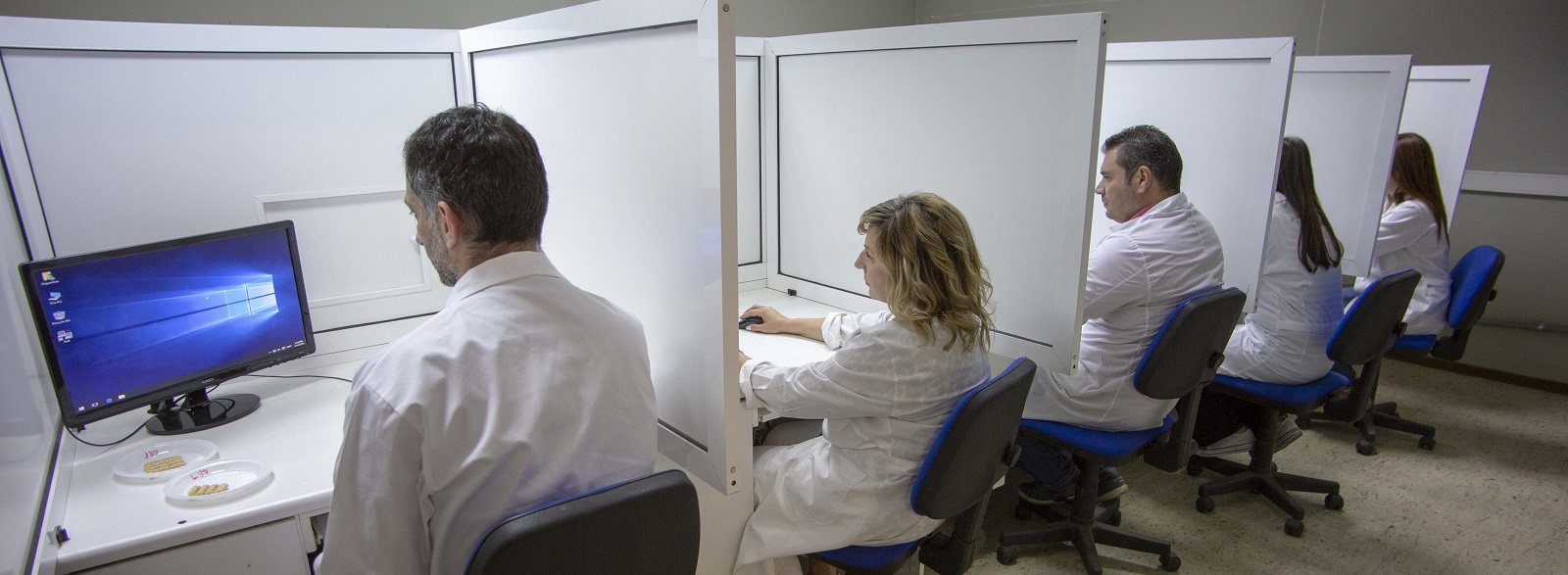Sensorial
Sensorial for food & beverages
Organoleptic testing is mainly conducted in food and beverages for the development of sensory profiles and sensory assessments. The aim of the laboratory is to measure, analyze and interpret reactions to those characteristics of foods and drinks which are perceived only by human senses (sight, smell, taste, hearing and touch). The organoleptic analysis is applied to study competition between products, new product development, the analysis of preference and acceptance by the consumer, the estimation of the product’s life cycle and ultimately the success of the product.
The main organoleptic tests are:
-
Product Preference Classification, where the tester classifies products according to taste, classifying the best as first, then the second best and the worst as the last.
-
Quantitative Descriptive Analysis, where a determination of the intensity of the main sensory characteristics of the samples is made, by using an un-numbered scoring ladder
-
Triangular testing where small differences between the samples are determined, for one or more characteristics.
The laboratory analyzes samples mainly for the food industry and the supermarkets.
Organoleptic Assessment Laboratory of Virgin Olive Oils
In the Organoleptic Testing Laboratory for Virgin Olive Oils, which is accredited under ISO 17025 and recognized by the IOC, virgin olive oils are evaluated based on their characteristics and then graded considering both their positive characteristics and their defects. The organoleptic assessment of virgin olive oils, combined with chemical tests, determines the classification of the olive oil, ensuring that it is of high quality and free from defects.
The Organoleptic Assessment is crucial for determining the quality of the Olive Oil and its classification in the correct category. It is mandatory, as it ensures that the required standards of taste, smell and texture are met, which are important not only for consumers but also for the producers themselves, since they are the criteria that must be met in order to achieve a higher price for their product. The Organoleptic Assessment process ensures the freshness and flavor of the Olive Oil and identifies any defects or imperfections such as rancidity.

